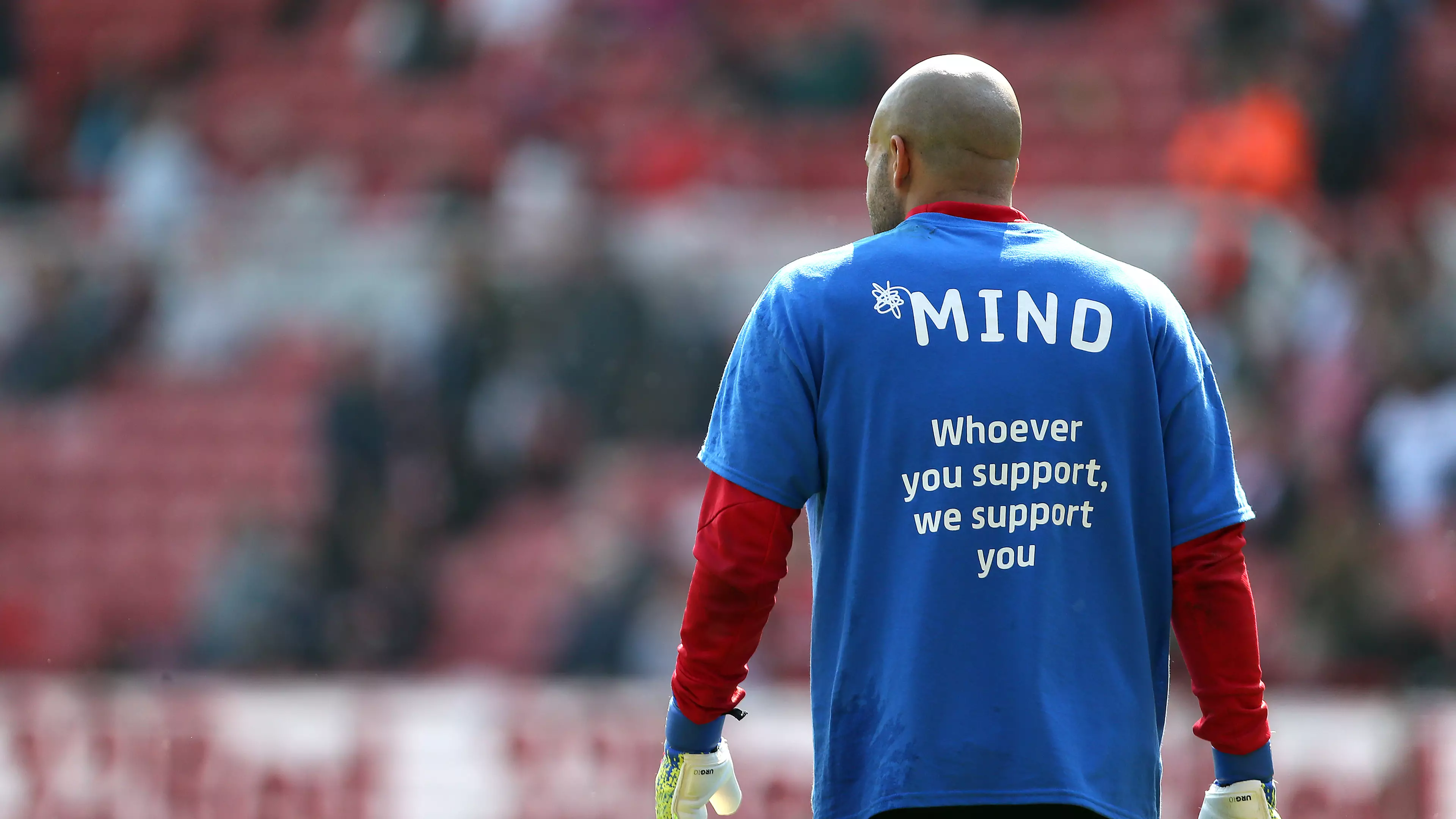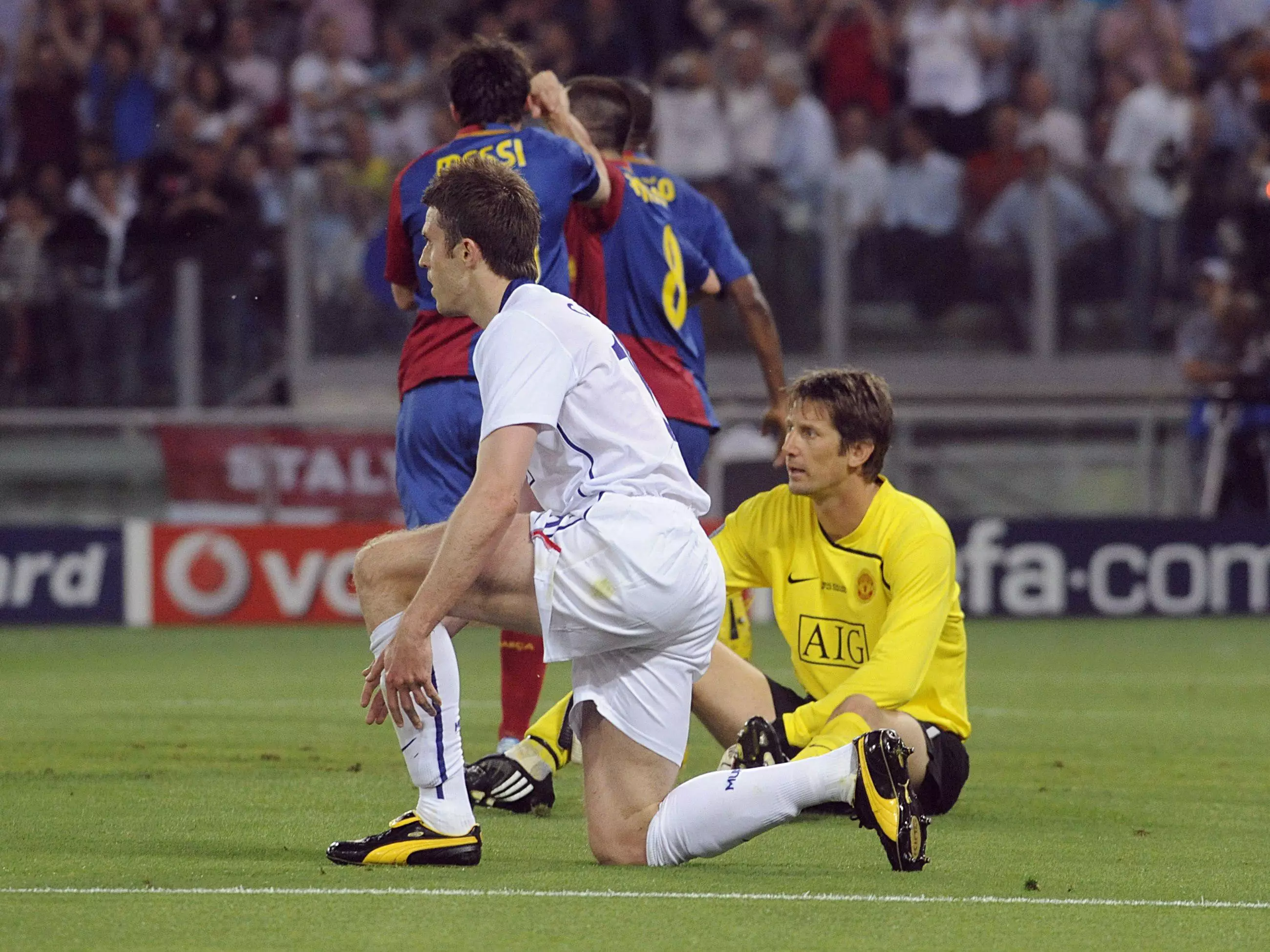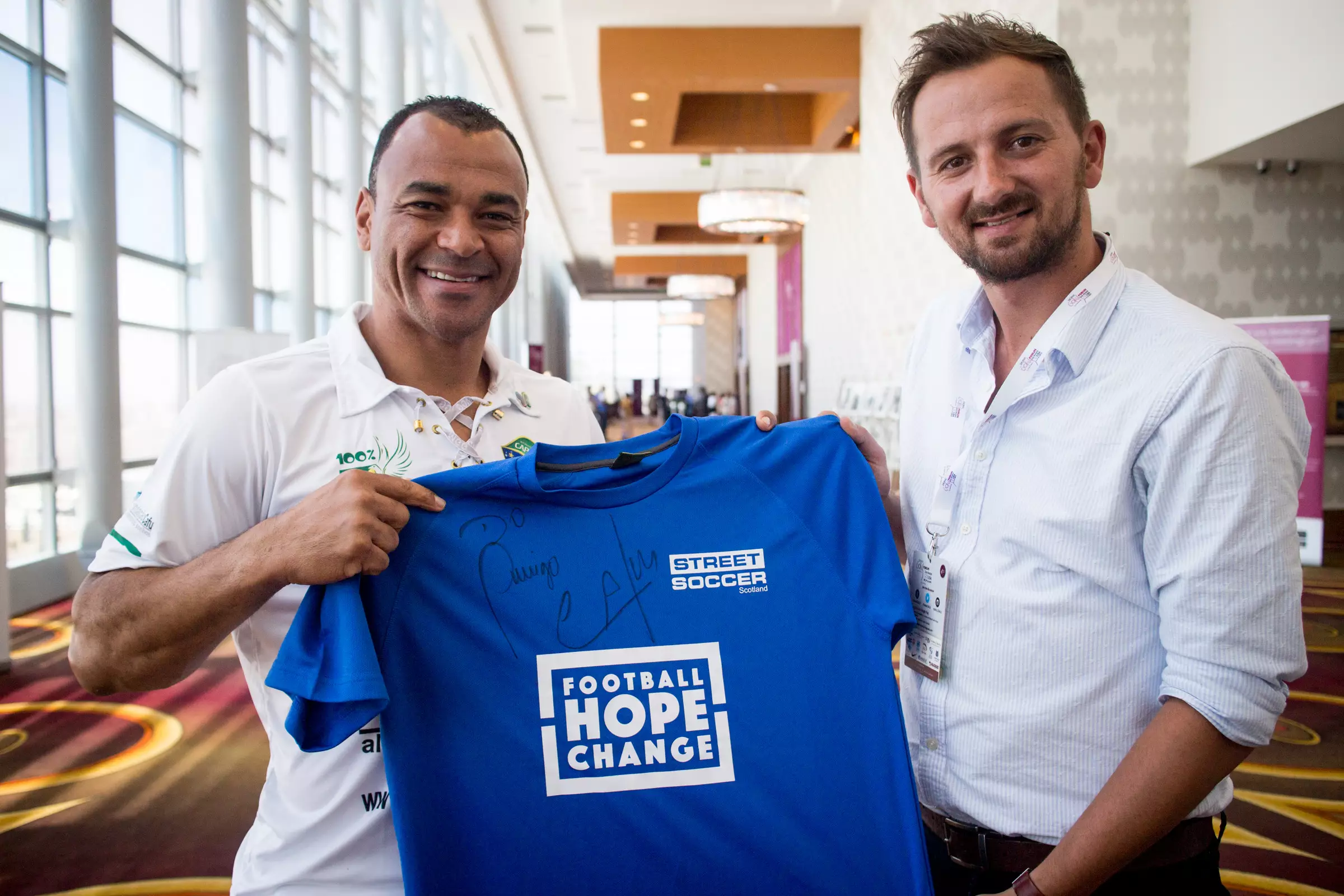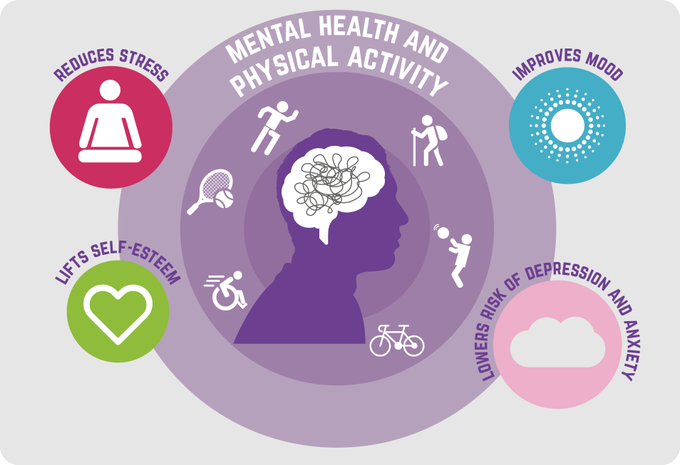
Understanding mental health is just as important as physical health.
Between three and nine professional footballers in a 25-person squad could show symptoms of common mental disorders such as distress, anxiety or depression during a season, according to FIFPro.
And away from the beautiful game, one in four people will experience a mental health illness in their lifetime.
Advert
In the media spotlight, surrounded by money, power and wealth, many forget that elite sportsmen and women are people too: they are no exception.
The stigma surrounding mental health is still ever present, but there are signs of movement.
More and more players are going public about their mental health issues, including former Manchester United midfielder Michael Carrick, who spoke about his depression last year.
Advert
He may have won everything there is to win under Sir Alex Ferguson, including the Champions League, but it was the 2009 final defeat to Barcelona that he struggled to deal with.
Speaking in an interview with The Times, the United coach told how he felt himself spiraling for about a year following the loss.
"It was the biggest low of my career by quite some way and I don't really know why." he said. "I thought I'd let myself down in the biggest game of my career. I had won the Champions League the year before, but that was totally irrelevant.
"It felt like I was depressed. I was really down. I imagine that is what depression is.
Advert
"I describe it as depression because it wasn't a one-off thing. I felt bad or terrible after some games, but then you get over it in the next couple of days, but that one I just couldn't shrug off. It was a strange feeling."

Carrick isn't the only player to help break the stigma.
A record amount of footballers are seeking help when it comes to mental health issues, while the PFA are set to assist more player than ever, according to a report from The Guardian.
Advert
In 2016 there were 160 cases recorded of players approaching the PFA about their mental health. Last year the total rose to 403 - a sign that things are moving forward.
We should encourage those who suffer such horrific experiences to speak out and seek help, to combat this stigma surrounding mental health.
Talking about your troubles may can help you overcome. You do not have to suffer in silence.
You can talk about the feelings of isolation, anxiety and depression that you may be keeping a secret.
Advert
The extent of mental health problems are very real. 4-10% of people in England will experience depression in their lifetime.
In 2013, there were 6,233 suicides recorded in the UK for people aged 15 and older, but you can overcome these issues.
David Duke is a huge inspiration for those searching for answers.
In 2001, the death of his father sent him to a bad place. Duke struggled with alcohol and depression and by the age of 22, he was homeless.
During his time at a shelter, he found a poster for the Homeless World Cup and proceeded to try and turn his life around in 2004.
Duke trained hard and found answers through the process. In 2009, Duke started Street Soccer Scotland, an organisation that helps more than 1,000 people from disadvantaged backgrounds who struggle with social isolation and mental health.
He acted.
We spoke to Duke about his incredible journey from homelessness to Street Soccer Scotland.
His story is a superb example of how football can be a great source of hope for those who are suffering from mental health issues:
"Being Homeless, you not only lose the roof over your head, but also your pride, self esteem, confidence and hope. Football gave me hope and provide me with new positives networks and connections which allowed me to move on. " he told SPORTbible.

"I moved into housing, then education and volunteering, and now I'm a founder of a social enterprise and charity.
"Being given an opportunity at a time when I needed it inspired me to help others in the same situation. And today, i'm lucky to have a job I love and work with some of the most inspiring people in the world."
David works closely with local and national Government, sports governing bodies, mental health charities, housing associations and professional football clubs all with the aim of improving the lives of those who face some of society's biggest challenges.
He went on to emphasise the importance of speaking out about mental health.
"Being open and talking about mental health is important. Talking to someone is in itself one of the best therapies for anyone. Its ok not to feel ok, and we shouldn't hide our feelings.
"Dealing with mental health on your own is lonely and dangerous. 1 in 4 men experience mental health, so its not uncommon, so speaking about it and realising other people feel the same, can offer peace of mind and hope."
Olympic gymnast Louis Smith, who talked about his own experiences of depression in an interview with LADbible in 2016, also reiterated the importance of talking about mental health:
"I was snatched away from my old life so quick, I got that down I could see why people would end up committing suicide."
"I think men try to be proud. Almost to the point that they try to be in denial. And if anything goes wrong, it just boils over."
Society must open up about mental health and the serious issues it can bring.
Spread the word and break the stigma.
Featured Image Credit:Topics: Mental Health

